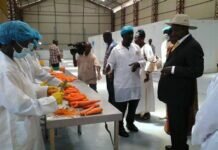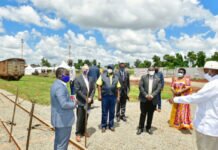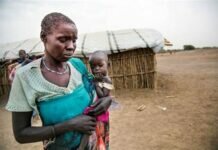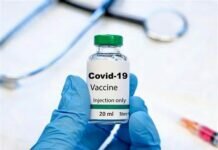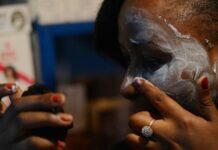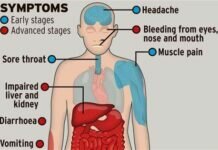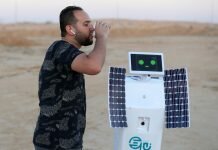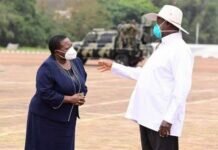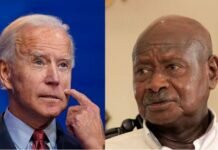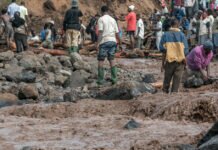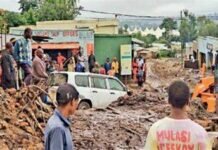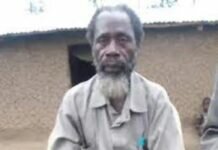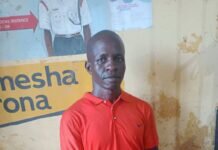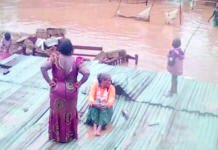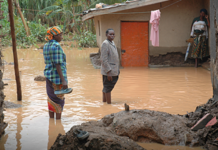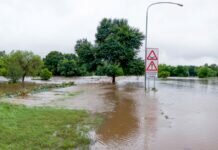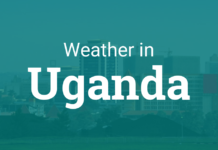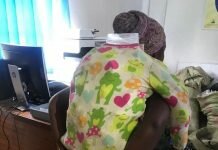
By
In the a wake of COVID-19, Ugandans from all walks of life prayed and panicked. COVID claimed the lives of many prominent Ugandans, disrupted economic activities, and forced the government to divert already scarce resources to save lives. The pandemic also left the country with huge debts. Did we learn any lessons?
The government ramped up borrowing internally and from international lenders. For example, Uganda received UGX 1.9 trillion from the IMF in budget support and loans channeled through the Bank of Uganda. The country also received UGX 1.2 trillion as budget support from the World Bank, UGX 17.2 billion from European Union grant as budget support, and UGX 1.3 trillion each from Stanbic Bank, pushing the total amount of money picked in the name of Covid to UGX 5.8 trillion. We will have to repay back this money with interest.
Did we learn any lessons from these pandemics?
Dr. George Patrick Akabwai, an infectious disease specialist told a media round table recently that the pandemic taught us very difficult lessons. He says we need to intentionally plan better to avoid the many challenges that may come with future pandemics that are bound to occur.
Experts warn that COVID-19 and Ebola are not the last pandemics to hit us; more are on the way as a result of climate change and migration. Global warming is likely to fuel future pandemics by dramatically increasing the risk that viruses will jump into humans from other animals.
According to a recent study published in the Proceedings of the National Academy of Sciences, the likelihood of an extreme infectious disease epidemic, similar to the COVID-19 pandemic, could triple in the years to come.
The possibility of another pandemic is “going to probably increase because of all of the environmental changes that are occurring,” William Pan, PhD, one of the study authors and an associate professor of global environmental health at Duke University, revealed.
The COVID-19 pandemic that swept the globe and claimed over six million lives certainly came from a wild bat, highlighting the danger of humanity’s constant encroachment on the planet’s dwindling wild spaces.
COVID-19 and Ebola have taught us a lot.
Dr. Akabwai says the hard lessons we learned from COVID-19 and Ebola should be able to stimulate us to work smarter to effectively handle possible future pandemics.
“Failure to plan is planning to fail.” Uganda is a poor country; when pandemics strike, we end up spending more, including borrowed money. We therefore ought to develop a proper pandemic and response plan with a clear set of activities at all levels.
Experts agree that the Ugandan government must invest more in healthcare so that even the most ordinary person can be admitted to an intensive care unit when the need arises.
At the height of COVID-19, some Ugandans died because the ICUs were full to capacity.
Experts think it’s high time the government deliberately invested in public health care, invest more in human resources, train more health workers, and, above all, invest in community engagement. “If the community owns it, you can easily manage situations.”
Dr. Akabwai reveals that pandemics start with communities and end with them.
No one should be left behind:
Dr. Arnold Ezama, the Epidemics & Pandemics Preparedness manager at the Uganda Red Cross Society, says if there is anything we have learnt from COVID and Ebola, it is the need to address social injustices.
“We need to deliberately design interventions with gender lenses.” The interventions we design should be able to reach the neglected and disadvantaged groups; otherwise, it is from these spots that the diseases start and spread to the rest of the population.
It is through Ebola outbreak, that we learnt that Kasanda did have not have a district health officer, electricity had to be extended to areas it had not reached, and road networks had to be improved because ambulances needed to move.
These are great lessons, says Dr. Ezama. ‘‘we need to intentionally identify those groups, areas that are at risk, disadvantaged & channel more resources to them.’’
It is through the Ebola outbreak that we learnt that Kasanda did not have a district health officer, electricity had to be extended to areas it had not reached, and road networks had to be improved because ambulances needed to move.
“These are great lessons,” says Dr. Ezama. “We need to intentionally identify those groups and areas that are at risk or disadvantaged and channel more resources to them.”
Other experts argue that we need to start holding leaders accountable. “In a way, leaders need to know what they ought to do, and the population needs to know what is due to them and demand it—accountability—if it is vaccines, they should be able to get them.”
Others think it’s time to take advantage of our good weather, which enables us to grow food without so much trouble. “We don’t need to wait for outbreaks to start talking about food scarcity or the challenges of food security in the country.”
At the height of COVID-19, food relief packages of maize flour and beans were distributed to those in greatest need. But these rations would only last a few days. People with low incomes stockpiled food, sending food prices skyrocketing.
also read: A Bank on a Mission: How Equity is Shaking Up Uganda’s Banking Industry
About the author: The writer is a marketing and distribution expert. He sees business in everything. He loves writing business news, reviews, and analyses. Reach him on or Twitter: @mkaketo LinkedIn: Moses Kaketo

